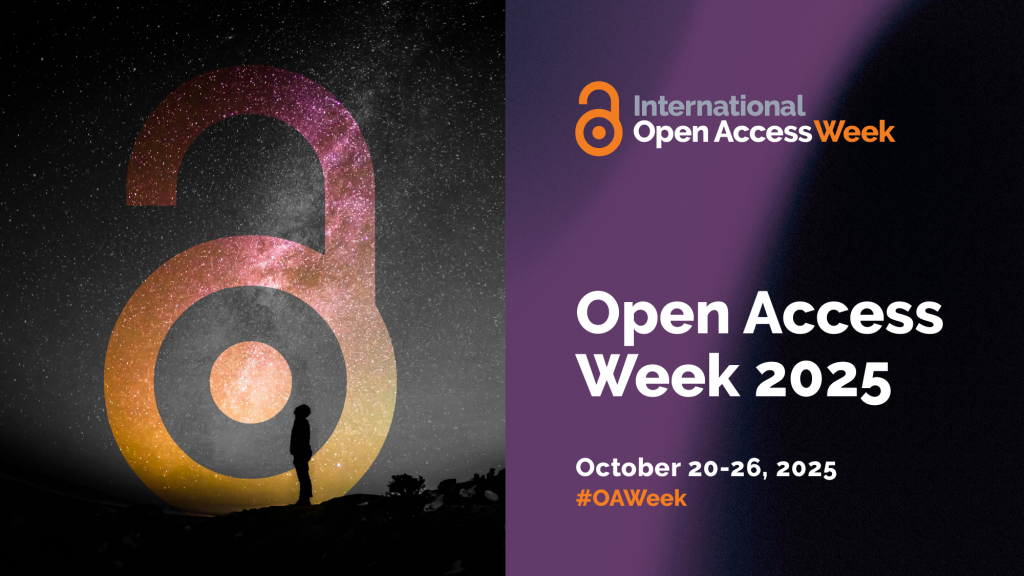October 20–26, is International Open Access Week, a global event organized by the Scholarly Publishing and Academic Resources Coalition (SPARC) in partnership with the Open Access Week Advisory Committee. Each year, libraries, universities, and researchers around the world come together to celebrate the movement to make scholarly and creative work freely available for anyone to read, learn from, and build upon.
Why does it matter?
Because research and knowledge should be accessible to everyone. Open access helps students, teachers, small businesses, journalists, and lifelong learners everywhere explore high-quality information.
Here are a few ways you can explore open access resources right now:
- ScholarWorks @UA – Our institutional repository, full of open research, theses, and creative work from local scholars throughout the University of Alaska system.
- Creative Commons – Learn how creators share their work openly while keeping some rights reserved.
- Project Gutenberg – Over 70,000 free eBooks, from Jane Austen to Frederick Douglass, all in the public domain.
- Directory of Open Access Books (DOAB) and Directory of Open Access Journals (DOAJ) – Thousands of peer-reviewed books and articles freely available to read and cite.
Faculty interested in incorporating Open Educational Resources (OER) into their courses can explore our OER Guide. This guide provides practical information on finding, evaluating, and using OER, including discipline-specific collections and tools for creating or adapting open materials. It is a helpful starting point for anyone looking to reduce textbook costs and increase access to learning.
Open Access empowers everyone to learn, create, and share without barriers. It is about connection, collaboration, and making sure that knowledge – whether it is groundbreaking research or a beautifully scanned old book – is available to all!



